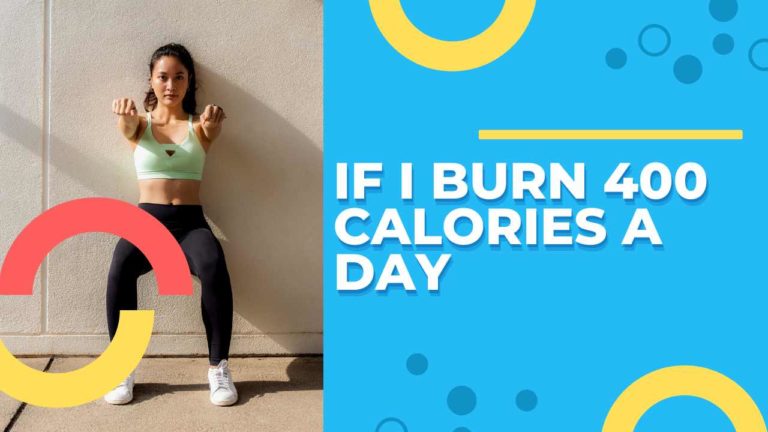The Ultimate Guide to Depression Weight Loss
Have you ever noticed that your appetite seems to disappear during intense sadness or despair? It’s not uncommon for individuals suffering from depression to experience significant weight loss as a result of their emotional state.
Depression weight loss is a topic that highlights the profound connection between mental health and physical well-being. In this article, we will delve into the complex relationship between depression and weight loss, exploring how this mental health condition can impact our eating habits and ultimately lead to shedding those unwanted pounds.
The Link Between Depression and Weight Loss
The link between depression and weight loss is a multifaceted and often underestimated aspect of mental health. While it is common knowledge that depression can lead to changes in appetite and eating habits, the resulting weight loss can be a cause for concern. When individuals are in the throes of depression, their interest in food and meal preparation can wane significantly.

Loss of appetite, reduced motivation to eat, and a diminished sense of pleasure in food are characteristic symptoms of depression. This can result in a caloric deficit, where individuals simply do not consume enough nutrients to maintain their weight. Additionally, depression can lead to other behaviours, such as increased physical activity or restlessness, which can further contribute to weight loss.
However, it is essential to note that while some people with depression may experience weight loss, others may gain weight due to overeating as a way of coping with their emotional distress. Therefore, the relationship between depression and weight can vary widely from person to person, making it a complex and individualized issue to address in the context of mental health care.
Factors Contributing to Weight Loss in Depression
Several factors can contribute to weight loss in individuals experiencing depression. These factors often work in tandem, exacerbating the effects of depression on one’s appetite and overall nutritional intake:
Appetite Changes:
Depression often leads to a diminished interest in food. Individuals may experience a significant decrease in appetite, finding it challenging to eat even when they recognize the need to do so. This reduced appetite can result in inadequate calorie intake, leading to weight loss over time.
Loss of Interest in Pleasurable Activities (Anhedonia):
Depression can rob individuals of the joy and satisfaction typically associated with eating. Meals, once a source of pleasure, may become mundane or unappealing, causing individuals to eat less and contribute to weight loss.
Changes in Metabolism and Energy Levels:
Some individuals with depression experience physical restlessness and an inability to sit still. This restlessness can lead to increased physical activity, which burns more calories and may contribute to weight loss.
Social Isolation and Disrupted Eating Patterns:
Depression often leads to social isolation and a loss of interest in social activities, including communal meals. As individuals withdraw from their social circles, they may skip meals or eat irregularly, affecting their overall nutrition and weight.
Medications and Treatment Effects:
Some medications prescribed to manage depression may have side effects that impact appetite and weight. For example, certain antidepressants can either increase or decrease appetite, potentially affecting an individual’s weight.
Emotional Stress and Anxiety:
The emotional distress and anxiety often associated with depression can lead to physiological changes, including increased cortisol levels. Elevated stress hormones can affect metabolism and appetite, potentially resulting in weight loss.
Neglect of Self-Care:
Individuals grappling with depression may neglect basic self-care practices, including meal planning and preparation. The lack of proper nutrition can exacerbate weight loss.
Lack of Energy for Meal Preparation:
Depression frequently causes fatigue and low energy levels, making it difficult for individuals to muster the energy required for meal planning, cooking, and eating.
Strategies for managing weight loss during depression
Managing weight loss during depression can be challenging, but it’s essential to prioritize both mental and physical well-being. Here are some strategies to help address weight loss in the context of depression:
Seek Professional Help:
Start by consulting a healthcare provider or mental health professional. They can assess your condition, develop a treatment plan, and monitor your progress. They may also refer you to a registered dietitian or nutritionist.
Medication Adjustment:
If you are taking medication for depression that has contributed to weight loss, discuss potential alternatives or dosage adjustments with your healthcare provider. Finding the right medication can help manage both depression symptoms and weight loss concerns.
Therapy and Counseling:
Engage in therapy or counseling to address the emotional aspects of depression and its impact on eating habits. Cognitive-behavioral therapy (CBT) and interpersonal therapy (IPT) are often effective in addressing depression-related issues, including changes in appetite and eating behaviors.
Nutritional Guidance:
Consult with a registered dietitian to develop a balanced and nutritious eating plan tailored to your needs. They can help you maintain a healthy weight by optimizing your diet while considering any appetite changes.
Regular Meals:
Establish a regular meal and snack routine, even if you don’t feel hungry. Set specific meal times to ensure you get essential nutrients and calories to support your physical health.
Potential physical effects of depression weight loss
Weight loss resulting from depression can have a range of physical effects on the body, each of which can be detrimental to one’s overall health.
Nutritional Deficiencies: Inadequate food intake can lead to deficiencies in essential nutrients, such as vitamins, minerals, and protein, which may weaken the immune system, affect organ function, and contribute to muscle wasting.
Weakness and Fatigue: Weight loss can lead to muscle atrophy and a loss of physical strength, resulting in weakness and fatigue, which can further exacerbate depressive symptoms.
Compromised Immune Function: Malnutrition from weight loss may weaken the immune system, making the body more susceptible to infections and illnesses.
Cardiovascular Issues: Rapid weight loss can strain the cardiovascular system, potentially increasing the risk of heart problems, including arrhythmias and low blood pressure.
Bone Health: Insufficient nutrient intake can weaken bones and increase the risk of osteoporosis and fractures.
Gastrointestinal Problems: Depression-related stress and poor eating habits can lead to gastrointestinal issues, including stomachaches, constipation, and other digestive problems.
Hair and Skin Problems: Nutrient deficiencies can cause hair loss, dry skin, and other skin-related issues.
Final thoughts
In conclusion, Depression and weight loss often go together. Depression can make you not want to eat or make you eat too much because of your emotions, which can cause your weight to go up and down. Losing weight can also make you feel sad and hopeless. Getting help from healthcare professionals who can support and guide you is important. Therapy, medication, and lifestyle changes can help with both depression and weight loss at the same time. Remember that you’re not alone in this journey, so ask for help and take steps to improve your mental health and overall well-being.
FAQs
Q: Why does depression affect appetite and eating habits?
A: Depression affects the brain chemistry responsible for regulating appetite, leading to either increased or decreased appetite, depending on the individual.
Q: How much weight loss is considered significant?
A: Significant weight loss is typically defined as a 5% or more decrease in body weight within a span of six months without intentional dieting or exercise.







